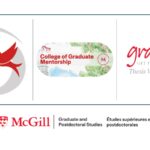12th Annual
Canada School of Public Service (CSPS)
National Student Paper Competition
2024-2025
Shah Zaib, Master of Science in Information Security and Privacy Student, University of Calgary
&
Harshad Krishnaraj, Master of Science in Information Security and Privacy Student, University of Calgary
Paper: Protecting Canada’s Seniors from Cyber Fraud: Education, Awareness, and Policy Solutions
Canadian seniors face an increased risk of cyber fraud as digital technology use grows. They lost $38 million to fraud in 2021. This paper highlights critical gaps in protections tailored to this demographic. It analyzes common scams such as phishing, tech support fraud, and charity scams. The paper proposes four solutions: public service–led education, financial sector awareness efforts, government and tech industry partnerships, and integrating cyber security into long-term care standards. Together, these strategies aim to improve digital literacy and resilience among seniors, promoting a safer, more inclusive digital environment for Canada’s aging population.
Shah Zaib is a graduate student pursuing a Master of Information Security and Privacy at the University of Calgary. He holds a Bachelor of Management Information Systems from the University of Alberta. Passionate about data integrity and digital safety, Shah has led enterprise-level data governance, quality monitoring, and cloud automation initiatives in the financial and energy sectors. Currently working as a Data Governance Specialist at ATB Financial, he has contributed to its data and AI governance strategy, implemented automated data quality systems, and managed metadata platforms such as Collibra and Dataplex. His dedication to improving digital safeguards for vulnerable populations led to his paper, “Protecting Canada’s Seniors from Cyber Fraud,” being named a finalist in the 12th National Student Paper Competition. Shah is committed to shaping secure, equitable digital frameworks through policy, technology, and education.
Harshad Krishnaraj is a dedicated information security researcher currently pursuing a Master of Science in Information Security at the University of Calgary. His research focuses on critical areas of modern cyber security, including privacy vulnerabilities in neural networks, public Wi-Fi security challenges, and cryptographic attack prevention. As lead researcher in the Privacy in Neural Networks project, Harshad investigates the complex balance between machine learning utility and data privacy protection. His technical expertise includes vulnerability testing with tools like OpenVAS and Zenmap, and developing exploitation frameworks for critical security flaws in various environments. His current work explores significant gaps between theoretical privacy solutions and practical deployment in neural networks, with particular emphasis on data anonymization limitations and protection against model inversion attacks. Harshad’s research aims to develop robust frameworks that enhance privacy guarantees while maintaining optimal model performance in real-world applications.
Overview
The National Student Paper Competition (NSPC) was launched in 2013 with the aim of:
– Introducing innovative ideas and bright new thinkers to the Canadian public service
– Enhancing public service excellence and encouraging high performance
The NSPC offers a unique opportunity for talented graduate students to connect with senior public servants, expand their networks, nurture their leadership skills, and foster employment opportunities with the federal public service.
The NSPC is an annual competition organized by the Canada School of Public Service in partnership with the Canadian Association of Programs in Public Administration and the Institute of Public Administration of Canada. The competition is also supported by various Canadian higher-education institutions and associations, including CAGS.
Outcomes and benefits of the competition
– A strong partnership between the federal public service, universities and higher-education associations that encourages graduate students to apply academic knowledge and skills to inform Canadian public policy and the Public Service of Canada.
– An increased number of promising graduate students in different fields of expertise across Canadian universities working with the federal public service and contributing with innovative, research-based ideas to enhance the lives of all Canadians.
– A talented, diverse, inclusive and modern workforce equipped with the skills needed to embrace new workplace challenges, design services, mobilize knowledge, and respond to the country’s evolving needs.
Learn about previous winners below.










